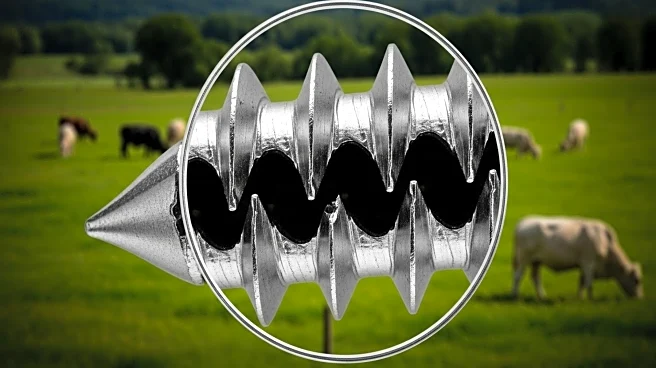What's Happening?
The New World Screwworm (NWS), Cochliomyia hominivorax, poses a significant threat to livestock, wildlife, and in rare cases, humans. This parasitic fly, native to the Americas, lays eggs on open wounds of living animals, leading to severe infections and economic losses. Infestations result in reduced productivity in meat, milk, and wool, high veterinary costs, and mortality losses, particularly in remote areas. Historically eradicated from the U.S. and Central America, the screwworm remains a concern in South America and the Caribbean. Experts warn that climate change and increased livestock movement could facilitate its spread to new regions.
Why It's Important?
The New World Screwworm represents a major biosecurity concern with potential global implications for agriculture and food security. The economic impact of infestations could reach billions of dollars, affecting agricultural exports and rural livelihoods. Effective control and eradication efforts, such as the Sterile Insect Technique and international cooperation, are crucial to prevent outbreaks. The situation underscores the importance of safeguarding animal health to ensure the resilience of the global food system, highlighting the interconnectedness of agriculture, trade, and biosecurity.
What's Next?
Efforts to control the spread of the New World Screwworm involve a combination of technologies and strategies, including releasing sterile male flies, developing new veterinary treatments, and implementing biosecurity measures. International cooperation and regional surveillance are essential to prevent the pest's introduction into previously eradicated areas. The agricultural community is closely monitoring the situation, with potential policy adjustments and increased research funding to address the threat.









